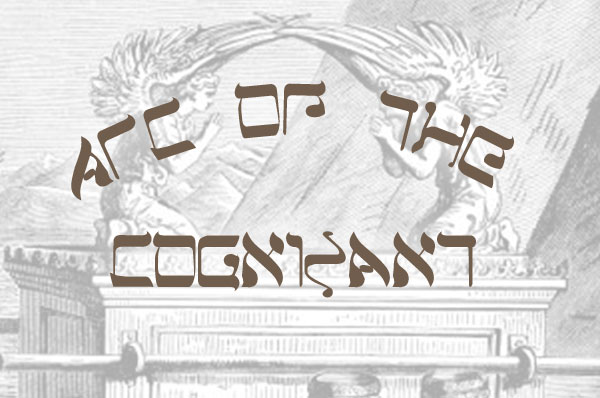What’s it like to experience The Dark Ages?
No more future, just the past
With this column, I intend to start writing only about historical topics that interest me. I have read over my columns from this year and I see a pattern in my writing, tending toward prediction rather than observation. I would rather not go on trying to be a prophet.
In this column, I have been asking the question, “How should humans live well, in our present situation?” I have described the present situation of humanity and our planet in rather bleak terms, as if I could be sure we are indeed heading into deterioration, unraveling, and twilight in human and planetary matters. I have cited many authors whose views accord with that.
But I do not know the future, and I do not want to carry around an idea that all is going downward. If I carry that concept as a basis for living, I construct a world shadowy with gloom; I create a reality for myself that is not wholesome for me.
So, I am going to turn my gaze to the past, not to tell us here in the present what we “should learn from history” but only for the interest in historical people and their thoughts about the times they lived in. There are no lessons taught by history, there are only teachers.
“How Shall We Then Live?”
My question about how to live was asked in 1976 in a similar way by Francis Shaeffer. His book was titled “how shall we then live?” and it inspired a TV and film series:
“The film series “Was intended as a Christian version of Sir Kenneth Clark‘s popular Civilization series on public television.”[17] Schaeffer often decried the Civilization series and other programs appearing on Public Television in Americaas part of a relativist conspiracy, declaring “Public television gives us many things that many of us like culturally, but is also completely committed to a propaganda position that the last reality is only material/energy shaped by pure chance. Clark’s Civilization, Bronowski‘s The Ascent of Man, Carl Sagan‘s Cosmos — they all say it. There is only one final view of reality that’s possible and that is that the final reality is material or energy shaped by pure chance. It is about us on every side… to force this anti-God view on the total population.” — theWikipedia entry for Shaeffer’s book.
Shaeffer was engaged in a polemic with other thinkers of the time, of which more later.
I thoroughly agree with this perspective offered by Shaeffer:
“People are unique in the inner life of the mind – what they are in their thought-world determines how they act. This is true of their value systems and it is true of their creativity. It is true of their corporate actions, such as political decisions, and it is true of their personal lives. The results of their thought-world flow through their fingers or from their tongues into the external world.”
Shaeffer is describing what I call “Mind” when he speaks of “thought-world” and he and I agree that our forms of mind are not a matter just of choice. Our consciousness is shaped. He was concerned, as I am, by what shapes us. Shaeffer also thought Christianity was the best path forward, and in that conviction I do not share; he argued this thesis from a study of history.
I love arguments based on a supposed lesson learned from history. I am interested in dark ages. So, let us look at Europe’s Dark Ages, after the Roman Empire collapsed in the west.
A History of the Fall into The Dark Ages
Because I have been predicting a dark age for humanity in the near future, and I have even intimated that the dark age has begun in some parts of our Earth, it is useful to look at the Dark Ages all of us have heard about.
When Rome fell, darkness came, is a cliché of history. This view is still widely believed.
Historians have gone through many fashions in writing about the Fall of Rome. Edward Gibbon wrote a dozen volumes on the decline and fall, and blamed barbarism and Christianity for the failure of Rome to maintain its empire in Europe; Frank Wall has called the failure of Rome “The Awful Revolution.” But revisionist history has tried to downplay the catastrophe of the fall and find as much continuity and slow adaptation among people’s lives as possible, to argue that few ordinary people really felt that there was a terrible collapse when Rome ceased to rule. For some people, the end of Roman power was a positive occurrence, not a thing to lament.
Personally, I believe that the opinion that a darkness was falling after Rome retreated, was dependent on who you were, where you lived, your social and ethnic status, your education, and your psychology. In other words, if a person sees darkness in the times around him- or herself, that is a personal perspective, not necessarily a factual statement about what is real.
My own predilection to gloomy views of our present is an example. Many people do not agree with my opinion that decline has crept into our politics, economy, and culture. That’s “just me.” Instead, they see many positives for humanity coming in the future. People at the time of Rome’s retreat from imperial order in the north and west of Europe might have seen shadows, but equally might have seen brighter prospects.
The Balance: did Rome’s retreat mean positive or negative effects for “civilization”?
Rome and its political, legal and economic order lasted 500 years in the west and northerly parts of Europe, but even longer in the Mediterranean and eastern regions. Britannia, Gaul (France) and Germany felt Roman power from about 100 BCE, but it was quite extinguished by 500 CE. In Italy, Greece, Egypt, North Africa and Anatolia (Turkey), Rome’s rule lasted well into the medieval era, until Islam conquered much of it; Constantinople, the New Rome, was lost to Islam only in 1453 CE. But in the west, from about 450 to 800 CE, the “Dark Ages” prevailed.
The age was dark by comparison to the earlier era of Roman peace because there was a great deal of war among Germanic and Celtic folks and tribes, mitigated a little by the influence of Christian teaching and the power of clergy to restrain warlords. Rome had maintained peace, and an order of law codes, courts and magistrates, and an obedient army, for centuries, and a thinking person would perceive the difference and probably conclude Roman order was better.
However, Roman order meant a very large number of people were enslaved property of the rich, and meant also an oppressive economic system that taxed the peasants massively to finance the army and other government apparatus. For people who knew how Roman power was based on a severe class system, the end of Roman imperial government might seem to be liberating.
The Christian perspective
Rome was converted to a state-monopoly religion, Christianity, by the late 300’s CE, and the popes in Rome came to have great power in the areas of Europe where the old empire had failed. A Christian intellectual had no doubt at all that Christendom was better than Rome’s political empire in the north and west. Popes were not emperors, yet their capacity to shape the doings of kings was quite marked in the medieval era.
But in the Dark Ages, the Church was hard put to influence the lords of war and land who ruled the masses. Sir Kenneth Clark says civilization was barely “saved by the skin of its teeth.” There were those who saved the classical inheritance of Greece and Rome – many unnamed clergy who copied the manuscripts of ancient writers — and there were great kings like Charlemagne the Frankish emperor who tried to restore the peaceful order of Rome, and also to spread Christianity. Religion and culture fought to save civilized lives for Europeans.
Francis Shaeffer set himself against the view of Clark and said that Greco-Roman “humanism and rationalism” are false foundations for a civilization; he preferred instead the true practice of Christianity that was “pristine” before Rome collapsed. Christianity was the light in the darkness of the era after Rome, says Shaeffer. Rome had lacked a spiritual basis for its life, and its religion was merely gods who were “amplified humanity, not divinity.” Christendom, as medieval Europe called itself, was superior to the Roman empire because it had a true spiritual basis, which Rome lacked. The disappearance of Roman law and order, and its brilliant engineering feats like the roads, aqueducts, and urban centres, was compensated for by the superiority of the religion of dark-age Europe.
Conclusion: to perceive darkness, one must be standing in light
The person who can say that a dark age has fallen must be one who is in full command of the facts about the present time and about the past. Intellectuals, with the leisure to read and study what is happening now and happened in history, might be in a position to judge. I suppose I am an intellectual, and I am certainly passionate about studying history.
Yet I know too little of both this moment and of historical moments, to offer a really compelling argument that the past was better than now. So it was for philosophical Romans when they looked back from the year 550 CE. They could see the retreat of their empire from west to east. But could they truly appreciate how people in the west felt liberated by Rome’s withdrawal of its armies?
I bemoan many aspects of this present, and I presume to see ahead, yet I cannot persuade an unwilling listener or reader that the past was better. For every decline in “quality of life” I might offer as my opinion, I know another person can offer what seems to them to be an advance.
The French have a fine phrase for it: chacun a son gout. Americans say it more bluntly, Ya pays yer money and ya takes yer chances.
Charles Jeanes is a Nelson-based writer. The previous edition of Arc Of The Cognizant can be found here.

























Comments